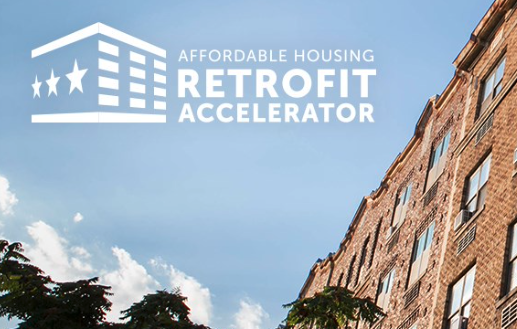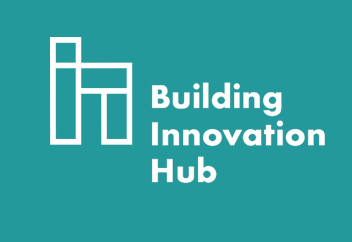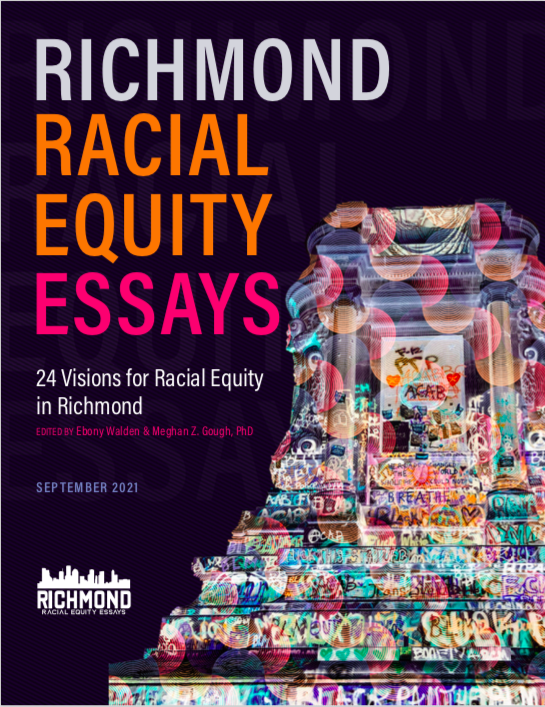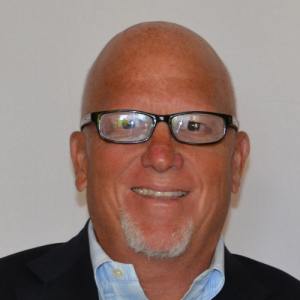November 22, 2021
 The HAND network is hard at work to address the growing housing affordability challenge across the Capital Region. Five Minutes With is a series highlighting these members and other stakeholders. This informal conversation delves into their recent projects, the affordable housing industry, and more. This month, in honor of November being American Indian Heritage Month, we are excited to share this special edition of Five Minutes With. In this edition, we had a conversation with Evelyn Immonen, a Program Officer for Enterprise Community Partners’ Rural and Native American Programs. Check out our dialogue below to learn more about the importance of having Native Americans in places of leadership, the recent movement to reauthorize NAHASDA, and advice on how you can help support the continuing of this important work beyond November!
The HAND network is hard at work to address the growing housing affordability challenge across the Capital Region. Five Minutes With is a series highlighting these members and other stakeholders. This informal conversation delves into their recent projects, the affordable housing industry, and more. This month, in honor of November being American Indian Heritage Month, we are excited to share this special edition of Five Minutes With. In this edition, we had a conversation with Evelyn Immonen, a Program Officer for Enterprise Community Partners’ Rural and Native American Programs. Check out our dialogue below to learn more about the importance of having Native Americans in places of leadership, the recent movement to reauthorize NAHASDA, and advice on how you can help support the continuing of this important work beyond November!
HAND: Can you tell us about Enterprise Community Partner’s Rural and Native American Programs and about how you landed in this space?
EI: Enterprise Community Partner’s Rural and Native American Programs provides resources, capacity building support, and technical assistance to organizations to help create safe, decent, green, affordable homes in both rural and Native communities. Enterprise is one of several national intermediaries in the affordable housing space, and I joined them from the Housing Assistance Council which focuses exclusively on rural America. I’m proud to see the work Enterprise does in these geographies growing.
HAND: Can you speak on how you approach your work in this space? Also, can you touch on the importance of having Native Americans in positions where they affect the issues facing their communities?
EI: My family has heritage with the Turtle Mountain Band of Chippewa Indians, and we have family ties on Standing Rock as well. I have always felt a connection to that history and sought to give back when I went to grad school for public policy. In my career, it wasn’t so important what issue I was working on so long as it was improving Native communities: I had an opportunity to work in affordable housing and now I’m happy to dive deeper into that. There are so many professionals in this sector that are incredibly knowledgeable, especially on the Rural and Native American team. Still, it’s rare to see organizations support Native people who have really been raised on the reservation and in ceremony—but that ought to be their core constituents, since it’s the communities who are most remote and most entrenched in generational poverty that need the greatest resources. There should be more Native Americans in positions where they can make a change simply because we will always hold a flame under the issues and not let anyone off the hook. That’s often what it takes in these spaces. Coastal elitism is quite real and it’s easy to tokenize without doing real work. I hope that I’m able to effectively bridge those two cultures, but at the same time I consider it a great obligation and responsibility.
HAND: Do you believe there is a “secret sauce” to providing both affordable and culturally relevant housing on tribal lands? What do you think is the most significant obstacle?
EI: Well, every housing development on tribal lands should start with the tribe themselves. If not the elected tribal council, then the housing authority they have appointed in their place. This is probably the clearest path to an affordable housing development that’s culturally relevant: by stepping aside to allow leaders from the community make decisions and direct priorities. Tribes are the most likely to be their own developers on their own lands, but even in cases of partnership with another developer, its not only respectful to defer to the tribe, but often they will have access to additional funding or be able to expedite approvals that make the project’s success possible. That leads me to the obstacle, though, because Native tribes are overburdened with many obligations and staff capacity is constantly an issue. Of course, these issues are quite complex and its difficult to make generalizations about all the different circumstances, but I think bringing more resources and assistance to a tribe-directed project is really the secret sauce.
HAND: Last month, in an article you reflected on how the Native American Housing and Self-Determination Act (NAHASDA) has transformed the landscape of Indian Country. Can you discuss the recent movement to reauthorize NAHASDA in both the House Financial Services Committee and Senate, and how the affordable housing community can continue to support the NAHASDA for the next 25 years?
EI: Reauthorizing NAHASDA and funding it in full is absolutely critical. Without authorization, there is nothing holding Congress accountable to funding the program each year, despite the over 40,000 single family and 25,000 rental homes developed over the last 25 years that prove how effective the legislation is. Reauthorization bills would also move the Tribal HUD-VASH program out of demonstration, and restructure HUD to better prioritize Native Housing. There has been legislation introduced to reauthorize NAHASDA in every Congress since it expired in 2013, and this year there is movement in both the House and Senate, but I don’t think it will ever come to fruition without pressure from advocacy organizations.
I’m optimistic to see that NAHASDA was funded at $875 million this last round of appropriations, which is the highest it has ever been. At the same time, if we consider inflation over the years, this still does not set up the program with the same resources it had in the first year of its existence. Now the cost burden of homeownership is rising, the population of Native Americans are rising, and the cost of construction materials post-2020 are rising. Every policy actor who works in the affordable housing space should be applying pressure to our legislators to prioritize NAHASDA.
HAND: Enterprise Community Partners recently completed the first Native Homeownership Learning Communities Cohort (NHLCC). What are some of the lessons learned from this?
EI: While I didn’t get the chance to work with the cohort while it was ongoing, I was really optimistic about what I saw in the Impact Report, which I helped put together. Enterprise’s team has really built up their expertise in homeownership in Indian Country over the years, through the Enhancing and Implementing Native Homeownership curriculum. What was different about NHLCC was that it was not geared just towards one tribe’s homeownership program but worked with 18 different groups for over a year. I think participants really valued the peer-learning component and the chance to learn from more experienced tribes as opposed to disengaged federal agencies. There was also a unique emphasis on collaboration with CDFIs, and groups expressed that they learned more about each other through NHLCC than working together on the same reservation for years. I would recommend checking out the Impact Report for more information, which also includes a profile of each tribal housing organization’s accomplishments over the cohort period.
HAND: What are you most looking forward to at the Rural and Native American Program over the coming months? Are there any projects or programs you are particularly excited about?
EI: I just mentioned Enterprise’s expertise in tribal homeownership, but I’m really looking forward to being a part of expanding our Native expertise into multi-family and rental as well. Enterprise is authoring a Native Developers Guide which will assist developers of multi-family and rental homes on Native land. It’s going to be comprehensive and include every stage of development so that TDHEs, Housing Authorities, and Non-profits have all the information they need in one place. At the same time, I’m excited to make this about more than just one publication and to hopefully have a hands-on, collaborative approach to making sure this is a useable and useful document for tribes.
Enterprise has a lot more on the horizon as well, and our team is continuing to educate the organization as a whole on working with tribes, including through a new Native American Advisory Council that’s forming with other Native nonprofits. We’re also expanding out of the lower 48 with new work in Alaska and Hawaii, so stay tuned!
HAND: We want to help support the continuing of this work beyond November, so what advice would you give someone who doesn’t know where to start and is seeking to make an impact? On the other end of the spectrum, what are some next steps for someone looking to advance the work they’re already doing work in this space
EI: First, you have to know your history, especially working in Native spaces. That doesn’t mean just the history of genocide and displacement, but also the legal history. The law is a living and breathing entity, and Indian Law has a number of complicated twists and turns in the fight for recognition of tribal sovereignty—several of these are covered in this blog post by my colleague Dustin Baird.
Then, its important to make change in your organization so that that history is recognized today. Land acknowledgements are a good way to start doing that, because it sets the intentions of any given meeting to focus on the land, its original inhabitants that still to this day consider it sacred, and our obligations to be good stewards to that land and to each other.
Finally, my advice to anyone currently working with Native communities: if you’ve been to one reservation, you have been to one reservation. Every Native Nation has their own land, treaty, history, culture, and government, and no two are the same. Make no assumptions, stay humble, and show up consistently. We need more of you.


 The HAND network is hard at work to address the growing housing affordability challenge across the Capital Region. Five Minutes With is a series highlighting these members and other stakeholders. This informal conversation delves into their recent projects, the affordable housing industry, and more. This month, in honor of November being American Indian Heritage Month, we are excited to share this special edition of Five Minutes With. In this edition, we had a conversation with
The HAND network is hard at work to address the growing housing affordability challenge across the Capital Region. Five Minutes With is a series highlighting these members and other stakeholders. This informal conversation delves into their recent projects, the affordable housing industry, and more. This month, in honor of November being American Indian Heritage Month, we are excited to share this special edition of Five Minutes With. In this edition, we had a conversation with  Judith Keller, a research scholar from Heidelberg University, is conducting a housing survey focusing on the Washington DC region. She aims to gain new insights into residents’ experiences on the housing and rental markets. If you are interested in participating, please find the link to her survey below. The survey will take less than 10 minutes to complete. Your help is very much appreciated!
Judith Keller, a research scholar from Heidelberg University, is conducting a housing survey focusing on the Washington DC region. She aims to gain new insights into residents’ experiences on the housing and rental markets. If you are interested in participating, please find the link to her survey below. The survey will take less than 10 minutes to complete. Your help is very much appreciated! 







